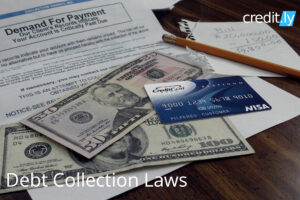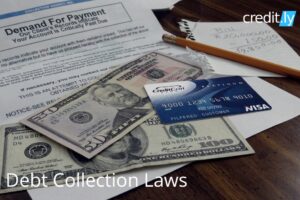[et_pb_section fb_built=”1″ _builder_version=”3.22.3″][et_pb_row _builder_version=”3.25″ background_size=”initial” background_position=”top_left” background_repeat=”repeat”][et_pb_column type=”4_4″ _builder_version=”3.0.47″ custom_padding=”|||” custom_padding__hover=”|||”][et_pb_post_title _builder_version=”3.26.6″ title_font=”|700|||||||” link_option_url_new_window=”on” z_index_tablet=”500″ title_text_shadow_horizontal_length_tablet=”0px” title_text_shadow_vertical_length_tablet=”0px” title_text_shadow_blur_strength_tablet=”1px” meta_text_shadow_horizontal_length_tablet=”0px” meta_text_shadow_vertical_length_tablet=”0px” meta_text_shadow_blur_strength_tablet=”1px” box_shadow_horizontal_tablet=”0px” box_shadow_vertical_tablet=”0px” box_shadow_blur_tablet=”40px” box_shadow_spread_tablet=”0px” text_shadow_horizontal_length_tablet=”0px” text_shadow_vertical_length_tablet=”0px” text_shadow_blur_strength_tablet=”1px”][/et_pb_post_title][et_pb_text _builder_version=”3.29.3″ z_index_tablet=”500″ text_text_shadow_horizontal_length_tablet=”0px” text_text_shadow_vertical_length_tablet=”0px” text_text_shadow_blur_strength_tablet=”1px” link_text_shadow_horizontal_length_tablet=”0px” link_text_shadow_vertical_length_tablet=”0px” link_text_shadow_blur_strength_tablet=”1px” ul_text_shadow_horizontal_length_tablet=”0px” ul_text_shadow_vertical_length_tablet=”0px” ul_text_shadow_blur_strength_tablet=”1px” ol_text_shadow_horizontal_length_tablet=”0px” ol_text_shadow_vertical_length_tablet=”0px” ol_text_shadow_blur_strength_tablet=”1px” quote_text_shadow_horizontal_length_tablet=”0px” quote_text_shadow_vertical_length_tablet=”0px” quote_text_shadow_blur_strength_tablet=”1px” header_text_shadow_horizontal_length_tablet=”0px” header_text_shadow_vertical_length_tablet=”0px” header_text_shadow_blur_strength_tablet=”1px” header_2_text_shadow_horizontal_length_tablet=”0px” header_2_text_shadow_vertical_length_tablet=”0px” header_2_text_shadow_blur_strength_tablet=”1px” header_3_text_shadow_horizontal_length_tablet=”0px” header_3_text_shadow_vertical_length_tablet=”0px” header_3_text_shadow_blur_strength_tablet=”1px” header_4_text_shadow_horizontal_length_tablet=”0px” header_4_text_shadow_vertical_length_tablet=”0px” header_4_text_shadow_blur_strength_tablet=”1px” header_5_text_shadow_horizontal_length_tablet=”0px” header_5_text_shadow_vertical_length_tablet=”0px” header_5_text_shadow_blur_strength_tablet=”1px” header_6_text_shadow_horizontal_length_tablet=”0px” header_6_text_shadow_vertical_length_tablet=”0px” header_6_text_shadow_blur_strength_tablet=”1px” box_shadow_horizontal_tablet=”0px” box_shadow_vertical_tablet=”0px” box_shadow_blur_tablet=”40px” box_shadow_spread_tablet=”0px”]
How do I actually reduce my debt?
IMCOne of the most common question that comes up when you find yourself in thousands of dollars of debt is simple — how do I actually reduce my debt?!? The challenge of debt reduction can seem insurmountable.
TV ads promising quick credit card debt relief fixes or debt reduction plans that will help pay off your debt in the “best” and “fastest” ways. But with a little dedication and planning, it is possible to reduce your debts on your own. The best way to reduce your debt can be free and effective. You just need to know where to start. Why pay debt counselors and consolidation agencies for things you can do yourself? Credit.ly shows you the tricks of the trade and the fastest way to get out of debt on your own with this five-step plan.
-
Evaluate Your Debts On an Ongoing Basis
Americans have $945.9 billion in outstanding credit card debt, also known as revolving debt, according to August 2016 data from the Federal Reserve. That means that, based off the most recent population numbers in the U.S., the average American carries nearly $4,000 worth of credit card debt. It’s important to know where you stand before you can tackle debt reduction, since the amount of debt and the type of debt you have will impact the options available to you.
Start collecting all of your financial documents and print out your free annual credit reports. Check two of your credit scores for free on Credit.ly to see exactly where you stand. This is an important step toward debt recovery, but one that people are often scared to take. On a piece of paper, write down the balance, interest rate and monthly amount due for each of your debts. Include your auto loans, personal loans, payday loans, credit cards and other debts. You should also make note of any annual fees on your credit cards. You don’t need to include your mortgage loan or student loans at this time. These loans have relatively long terms and low APRs, so it is better to focus on paying off your other debts first.
-
Look at Your Budget on a Week to Week and Month to Month Basis
After you have collected the information about your debts, take a look at your monthly budget. Write down your monthly income after taxes and subtract your rent/mortgage payment from this amount along with other monthly expenses such as childcare, student loan payments, insurance, utilities and groceries. Once you have subtracted all of your expenses, calculate how much you have left to pay off your debts. If this amount is too small, look for ways to reduce your spending. Consider turning off your cable subscription or carpooling as ways to cut back temporarily. The more you can pay toward your reducing debt each month, the sooner you will be debt-free.
-
Make a Plan and Stick to It
Looking good so far, well now that you’re better attuned to your financial situation, it’s time to create a plan for reducing your debts. Use your information from Step 1 and 2 to fill in the following chart. Subtract your minimum debt payments (Step 1) and monthly expenses (Step 2) from your monthly income after taxes. The remaining amount should be used to pay off the debt with the highest interest rate and the highest balance.
| Example | Your Plan | |
| Monthly income after taxes | $2,800 | $ |
| Minimum debt payments (1) | – $1,800 | – $ |
| Monthly expenses (2) | – $400 | – $ |
| Remaining amount goes to the debt with the highest rate and balance | = $600 | = $ |
Continue this cycle each month until the debt is paid off and then move on to the next highest rate/balance account. This may seem like an odd process, but it is the fastest way of reducing debts and limit the amount of interest you’ll owe. During this time, you should not add any new charges to your credit cards. Also, try to increase the amount you pay toward the most expensive debt each month. Track your progress with a chart like this:
| First Month | Second Month | Third Month | Fourth Month | Fifth Month | Sixth Month | |
| Payment Goal | $600 | $600 | $625 | $625 | $650 | $650 |
| Actual Payment | $625 |
-
Start Negotiations With Your creditors
While you are starting to follow your repayment plan from Step 3, you should contact your creditors and lenders to see if you can improve the terms on your debts. You may be able to lower your interest rates or negotiate a reduced settlement on some debts by speaking with the customer service department. It is especially easy to negotiate the terms of debts that are charged off (dismissed) by the creditor or in collections already. Also think about moving some of your credit card debts to new accounts with lower interest rates. Moving a balance to a credit card with a 0% introductory rate for 6-12 months can help you save a lot on interest. Just be sure to keep each of your credit card balances below 30% of the credit limits to avoid damaging your credit score. During this time, investigate if consolidating your debts into a personal loan or home equity loan could help too.
-
Follow Through on Your Debt Reduction Plan
Do your best to meet your repayment goals each month. It’s OK if the amount you put toward your most expensive debt each month varies. Just try to consistently put as much as possible toward your debts. Signing up for an automated payment system and keeping a chart of your progress on the refrigerator can help you stay on track. When you reach major milestones, be sure to celebrate your successes. Before you know it, you’ll be debt-free!
[/et_pb_text][/et_pb_column][/et_pb_row][/et_pb_section]









